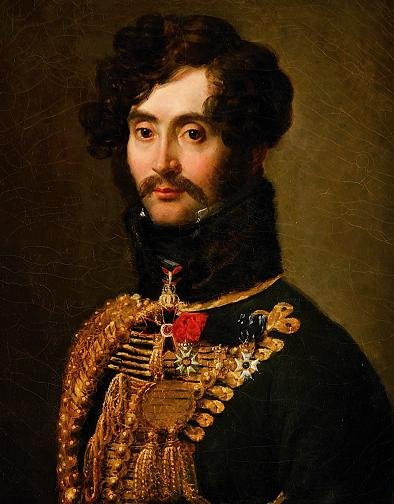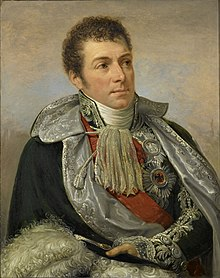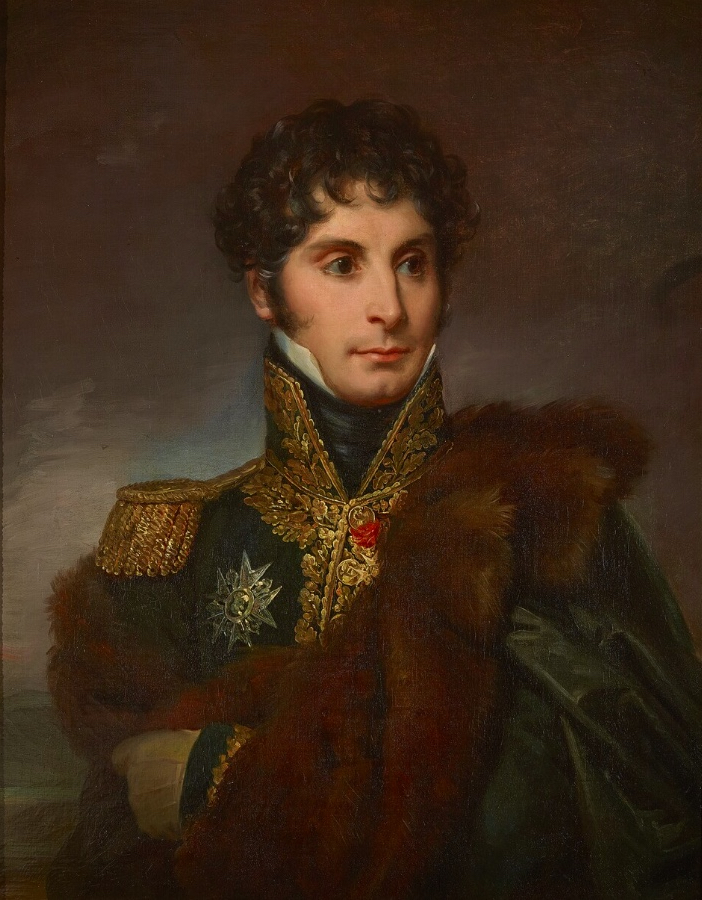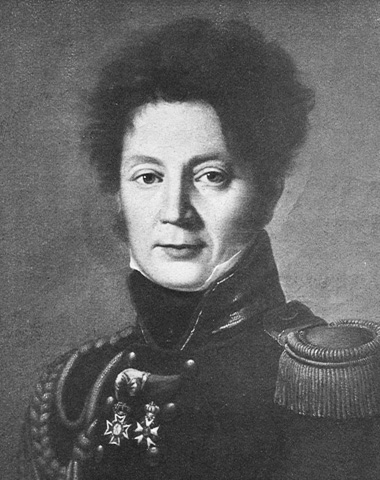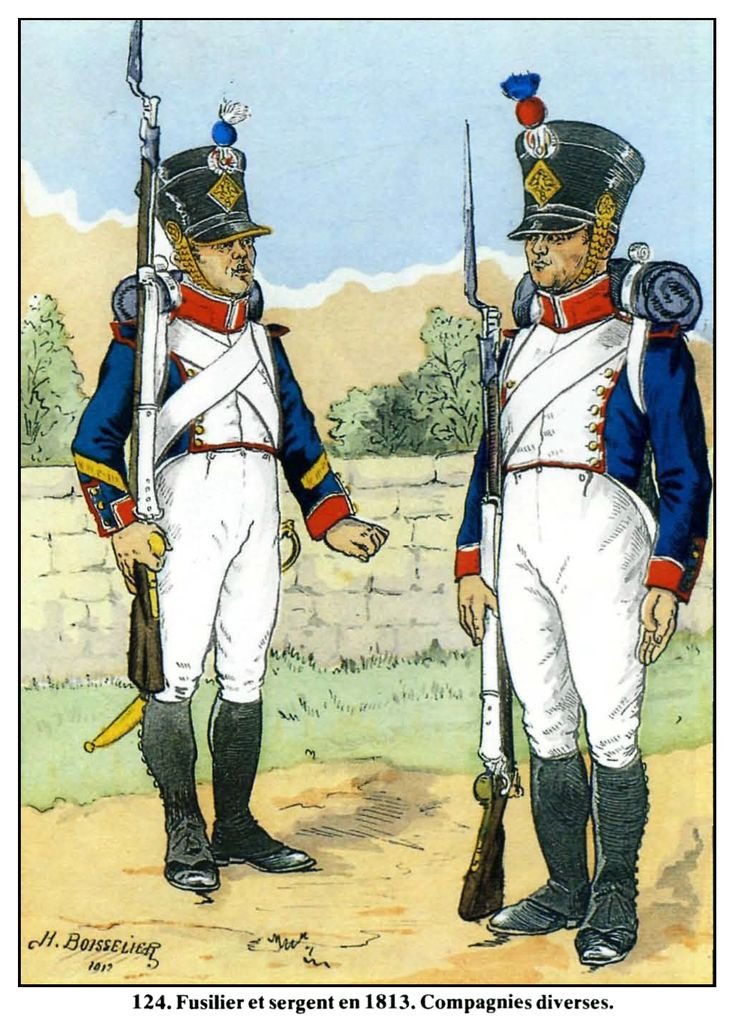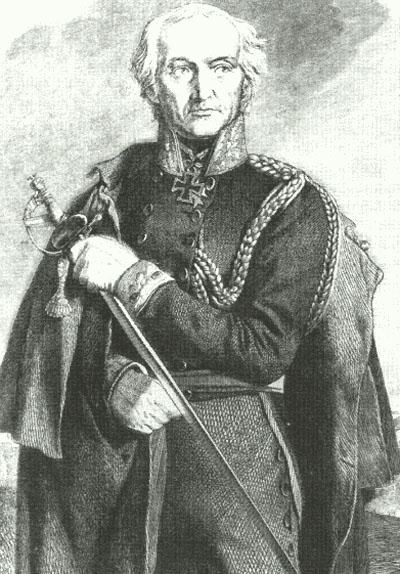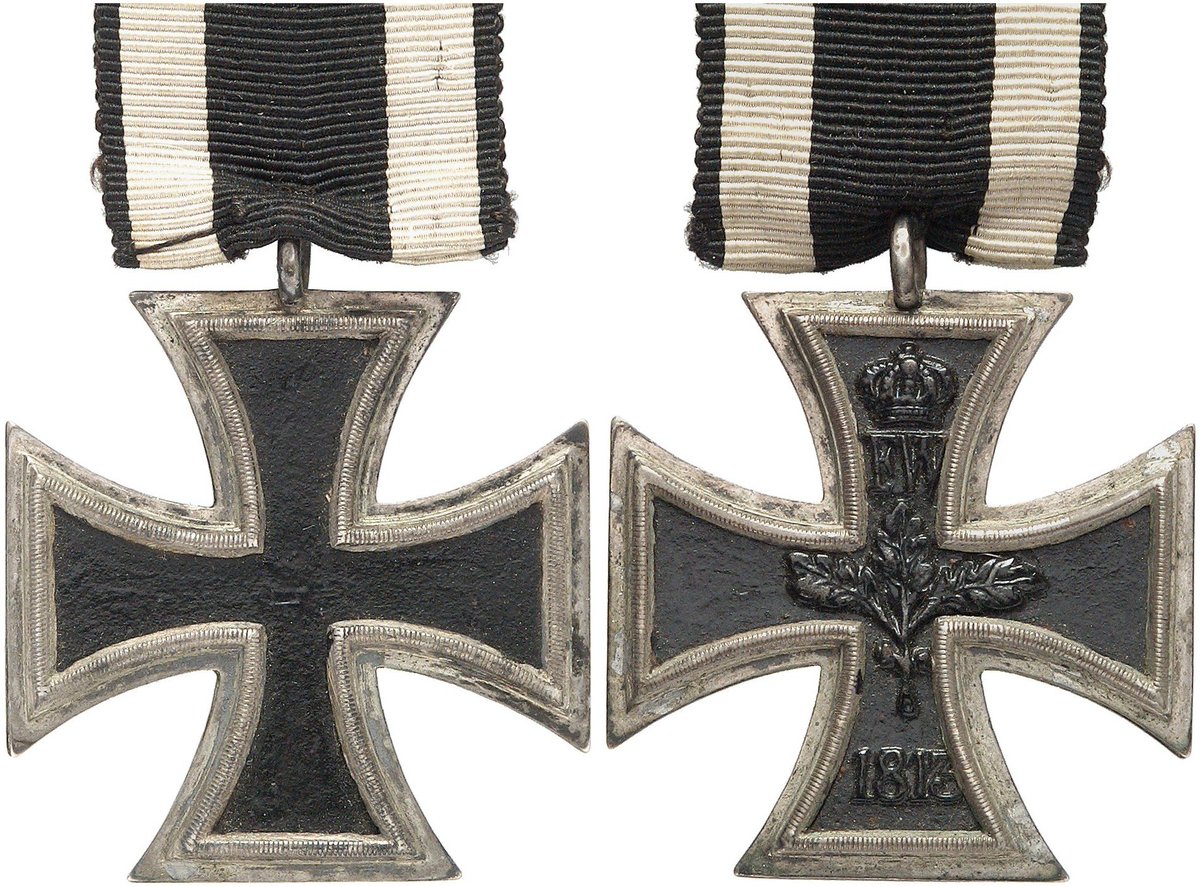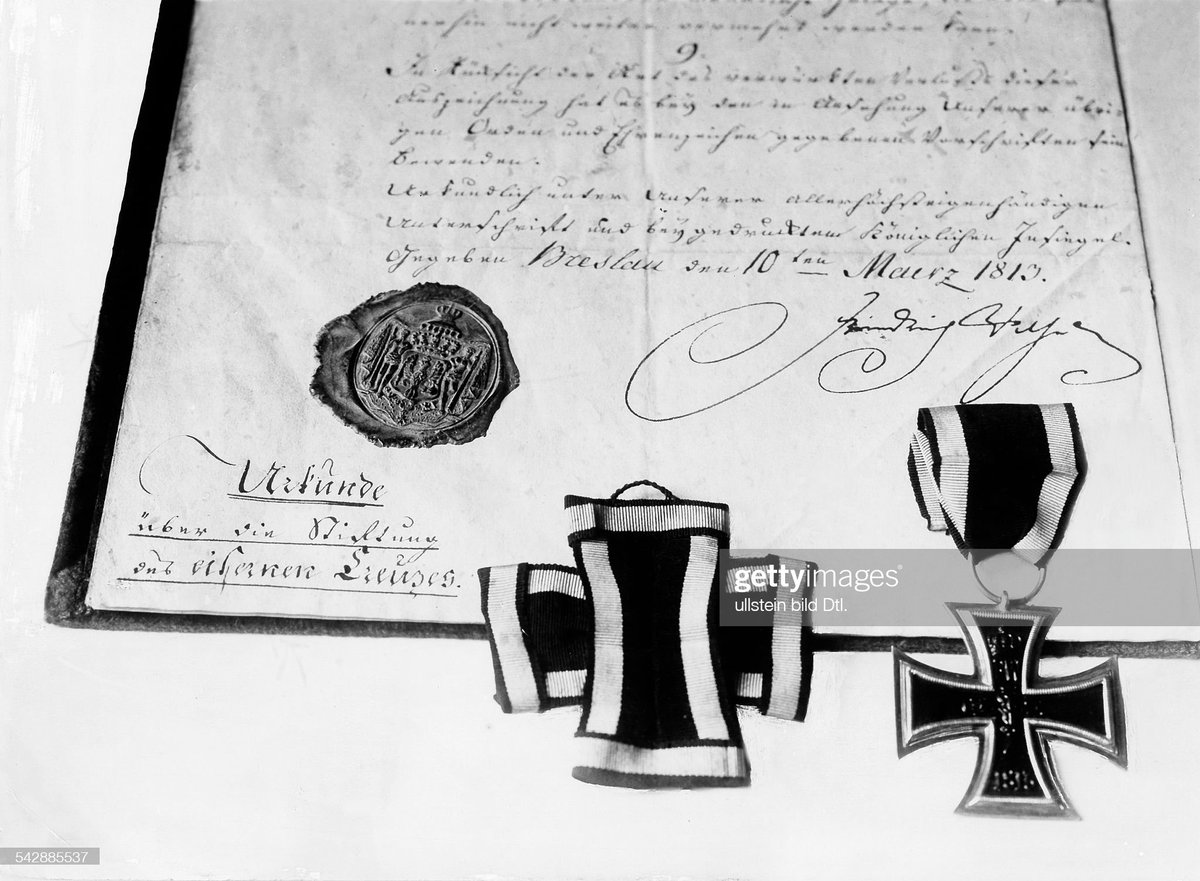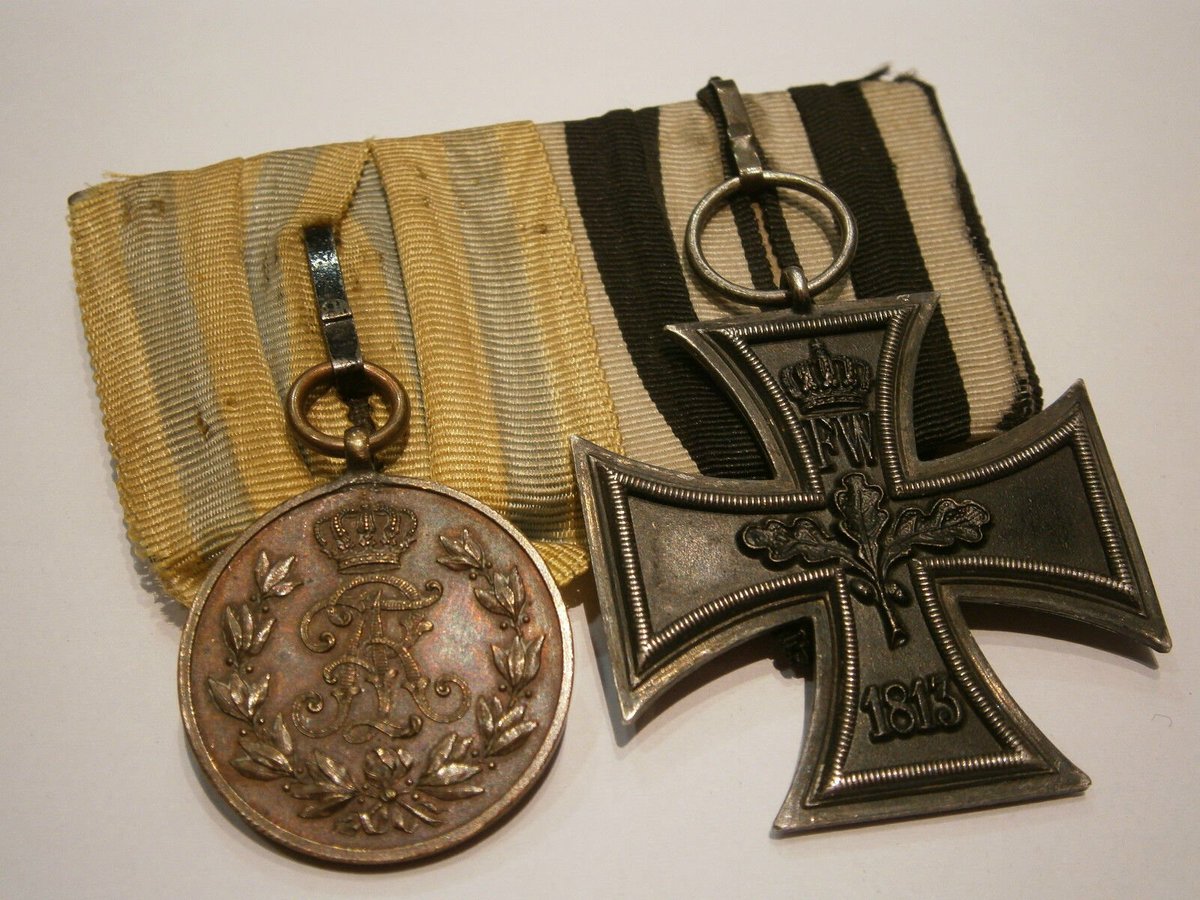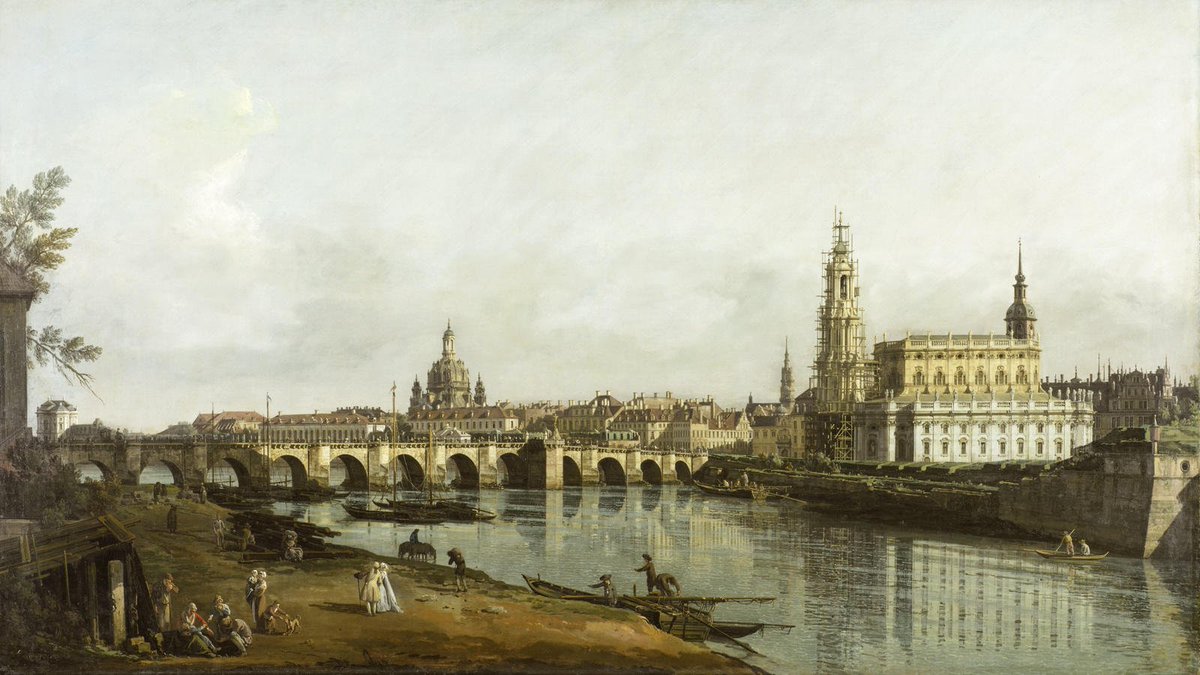
#OTD #Onthisday 13 March, 1813, a Russian provisional government for Poland was declared in Kalisch. Approved by the Tsar and announced by Kutuzov, the Provisional Supreme Council of the Duchy of Warsaw would serve as the interim government from 3 April 1813 to 1815. 
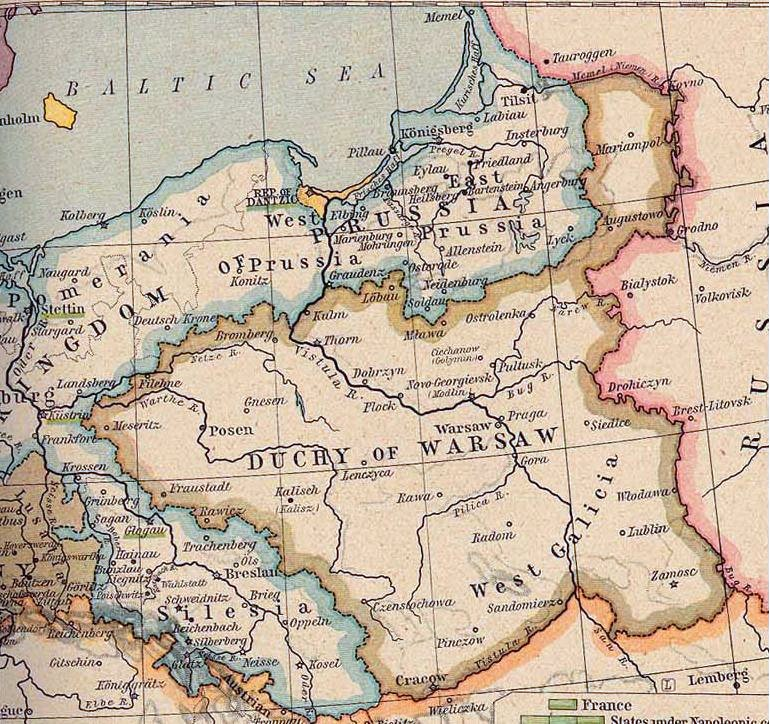
Alexander issued his approval for the Law on the Provisional Government of the Duchy of Warsaw, drafted by Kutuzov. The statute declared that "all classes should feel His Imperial Majesty's care for them and through this, and also thorugh the abolition of conscription,
would experience how great was the difference between his fatherly administration and the former one [under the French], which had been forced to plunder in order to satisfy the insatiable thirst for conquest of masters who called themselves allies."
(Kutuzov; Lieven)
(Kutuzov; Lieven)
Thus establishesd was the Provisional Supreme Council of Warsaw (Rada Najwyższa Tymczasowa Księstwa Warszawskiego). Vasily Lanskoy, the former intendent-general, was appointed the Governor-General and the head of the Government, and Nikolai Novosiltsev the Vice-Governor.
(L.)

(L.)
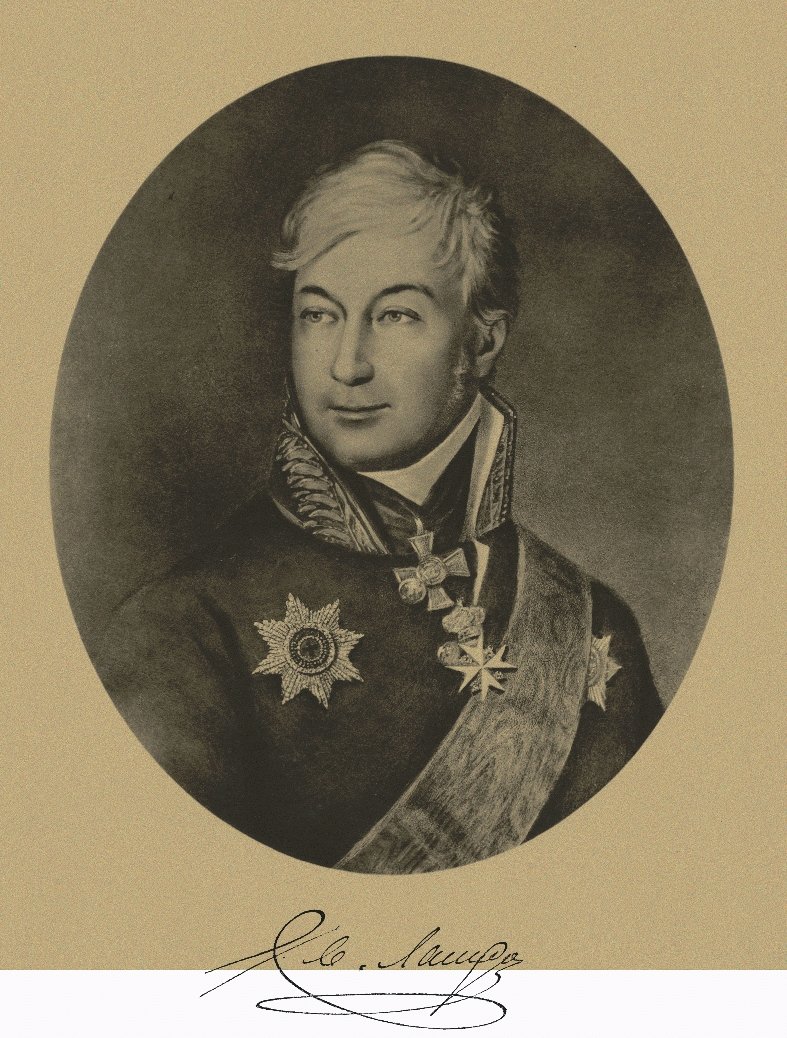
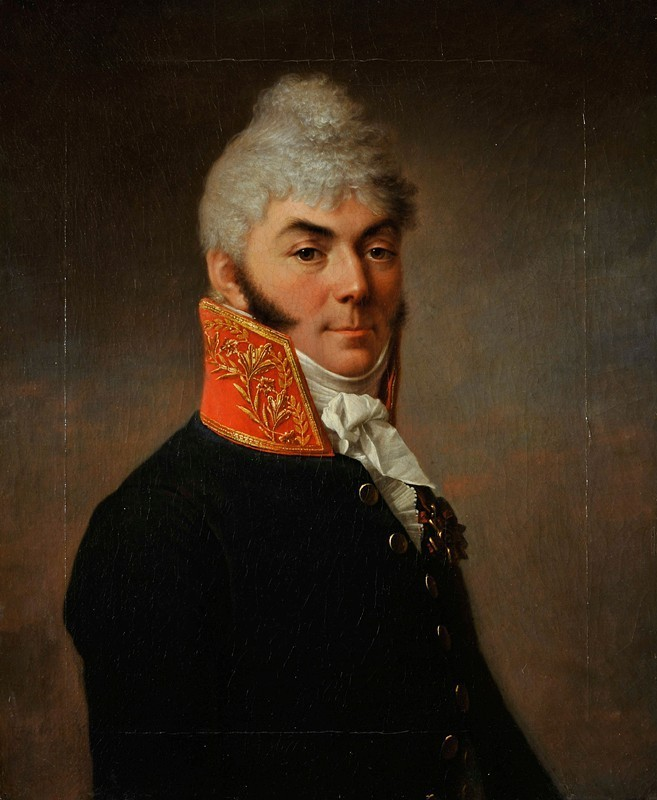
To what extent was the new regime's continuity and departure from the the Napoleonic Duchy of Warsaw? Politically, it ran directly contrary to what the few wishful locals had hoped for: a semi-autonomous kingdom ruled by Czartoryski, their compatriot in the Tsar's service.
Bignon, pitying their naivete, bitterly remarked:
"For all those who refused to be deceived, the composition of this council alone determined the future of Poland. It was obvious that all the plans, all the old ideas of Alexander had given place to new calculations.
"For all those who refused to be deceived, the composition of this council alone determined the future of Poland. It was obvious that all the plans, all the old ideas of Alexander had given place to new calculations.
The Supreme Council consisted of a governor, a vice-governor and three councilors. The two top officials were Russians nationals, and Russians even more in spirit.
The addition of the three councilors was only a formality calculated to deceive some debonair and gullible minds.
The addition of the three councilors was only a formality calculated to deceive some debonair and gullible minds.
The patriotic name of Wawerzcki [the Minister of Justice] was thrown there like a hook offered to the simple-minded and the ignorant. All reasonable men knew that if Russia could exploit the name of this veteran... 
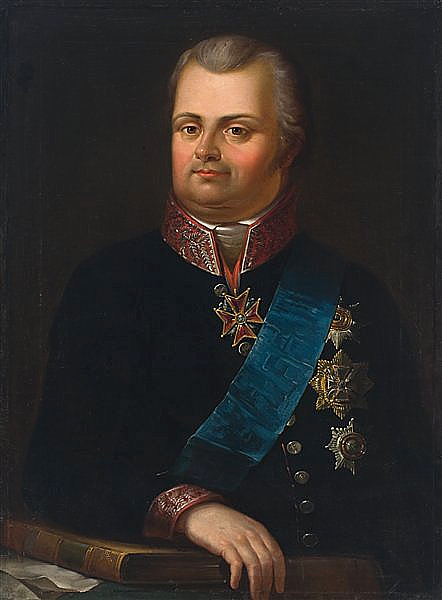
it was beyond the power of any human authority to degrade his dignity and debase his character. As for prince Lubecki [the Minister of Internal Affiars], he was a Pole fed in Petersburg, and had become more Russian than the Russians themselves. 
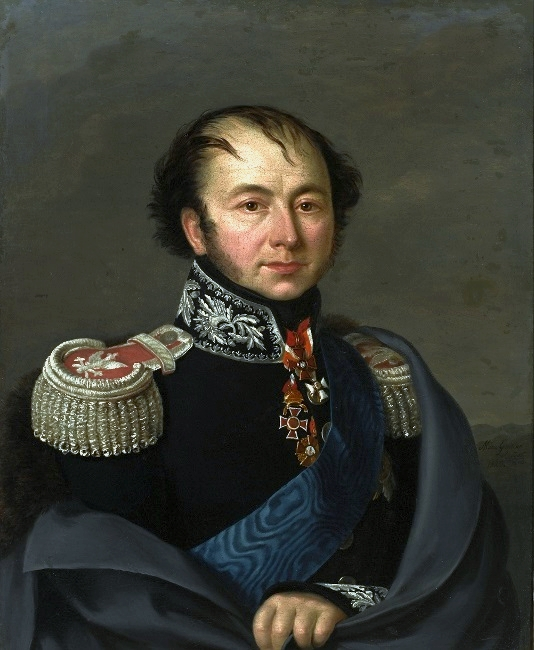
The third of these advisers was a Prussian employee named Colomba [von Colomb, the Minister of Treasury] whom the king of Saxony had placed in the administration of the goods allocated to the endowment of the crown."
(Bignon)
(Bignon)
In sum, the former ambassador to Warsaw criticized the provisional government as nothing but a puppet state of the Tsar, and "the biggest of...concerns" for the French. (Ibid)
Polish patriots, such as Countess Potocka, shared his frustration.
Polish patriots, such as Countess Potocka, shared his frustration.
Czartoryski, along with them, had been "deceived by illusory hopes." She accused the Vice-Governor of having "pretending to share Czartoryski's patriotic hopes and Alexander's liberal tendencies" while "profiting surreptitiously by the enormous wealth of [the former prince]."
Things would not end at relegating Czatoryski to a peripheral position. As Schlosser pointed out, "the most important of all...[he] had demanded in the name of his countrymen...that the Archduke Constantine should be kept at a distance from Poland" would be cancelled.
By a strange coincidence, the Frankfurt Gazette of the 15th sensationally described how Alexander "had sent his brother Constantine on a mission into Moscow, and that a Russian general had insinuated that he had lost his way, and that, in order to regain the right path he must,
instead of continuing his route to the south east, directed his steps to the north-west, the same distance he had already gone."
The article, making a circumvented criticism of the Grand Duke's personality unfit for throne, concluded:
The article, making a circumvented criticism of the Grand Duke's personality unfit for throne, concluded:
"If his brother Constantine had persisted in the object of his journey, one of those accidents, not quite unknown in the history of Russia, might have happened to Alexander."
(Bausset, Private Memoirs of the Court of Napoleon)
(Bausset, Private Memoirs of the Court of Napoleon)
In this view, the Council served as the final blow to what the Poles had yearned to achieve by sacrificing themselves during the campaign of 1812. However, such stance requires a cross-examination with the actual intentions of Napoleon and the space for reform in the new regime.
First, Napoleon remains guilty of refraining from supporting an independent Poland, at least not overtly. Several times during the Russian campaign, at the most strategically feasible moments to rally the Polish patriots, did he remain silent, to the latter's dismay.
An infamous instance was during his audience with the students from the University of Vilna, who had been impatient to hear from him the call to declare their independence from Russia. Napoleon threw a wet blanket over their hopes and dreams, when he remarked to their rector: 
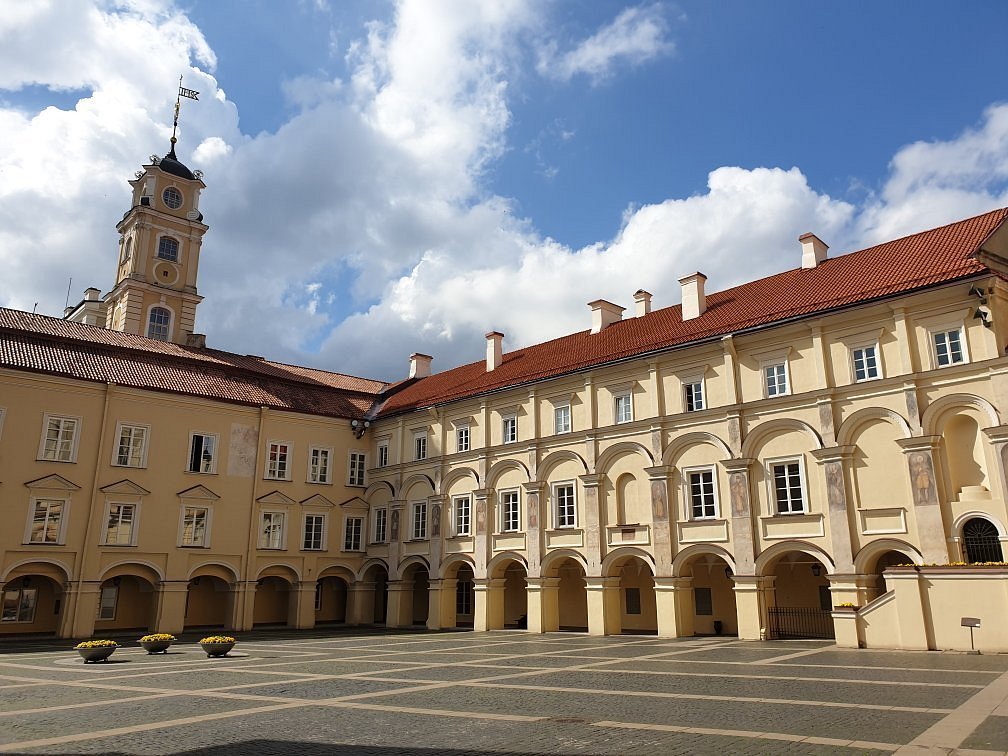
"[Alexander is] an excellent Emperor!"
His ambivalent attitude remained rather unchanged at the end of the campaign. Caulaincourt, who had endorsed neither the war nor the Polish independence, was certain that "Poland had become a military and political stepping-stone."
His ambivalent attitude remained rather unchanged at the end of the campaign. Caulaincourt, who had endorsed neither the war nor the Polish independence, was certain that "Poland had become a military and political stepping-stone."
Thus, it may be said that the regime change did not fundamentally alter the asymmetric power dynamics between the foreign power and the Polish nationales in Warsaw. While Lieven criticizes the appointment of the former intendent general as the scheme to exact military resources,
it should be noted that the Grande Armée in 1812, minus its most disciplined nuclei of men, was far from being innocent of the same charge.
Some historians even suggest that the provisional government also provided a fleeting opportunity for legal experimentation.
Some historians even suggest that the provisional government also provided a fleeting opportunity for legal experimentation.
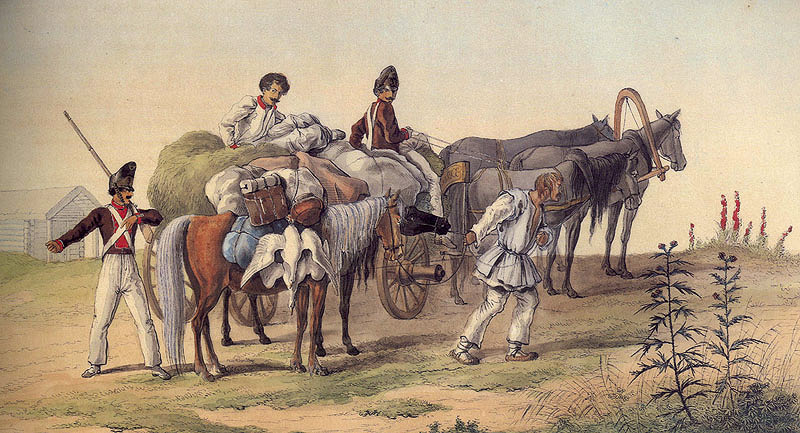
Michał Gałędek, for example, defines the years 1813-1815 as a transitional period between "the Napoleonic model" of highly centralized administration to "the bureaucratic state (Beamtenstaat)" inspired by "Montesquian theory of separation and balance of powers."
According to this framework, the Duchy of Warsaw "did not cease to exist from the formal point of view" but the Napoleonic Constitution began to lose its former influence, which helped inspire "ideas for a thorough reform of the system of country management."
Based on the date of his arrival in Breslau, 15 March, it is likely that Alexander left Kalisch after granting his approval for the new regime. With the Polish question settled, he was more than ready to discuss a coherent strategy with Frederick William.
-The End-
Note: Due to myself not being in the best condition to integrate everything in a thread, other events on this day will be covered in a separate thread.
Note: Due to myself not being in the best condition to integrate everything in a thread, other events on this day will be covered in a separate thread.
@threadreaderapp Unroll
• • •
Missing some Tweet in this thread? You can try to
force a refresh


